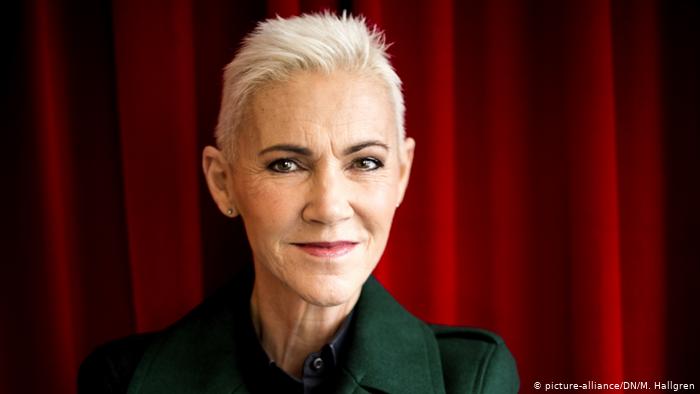Roxette Marie Fredriksson has died at 61. Her management team confirmed in a statement that Fredriksson’s death followed a 17-year battle with cancer.
The statement says the Swedish star died Monday afterwards years of battle with melanoma.
Gun-Marie Fredriksson, known as Marie Fredriksson (Swedish: [maˈriː ˇfreːdrɪkˌsɔn] (About this soundlisten); 30 May 1958 – 9 December 2019) was a Swedish pop singer, songwriter, pianist and painter, known for forming pop rock duo Roxette in 1986 alongside Per Gessle.
The duo achieved international success in the late-1980s and early-1990s with their albums Look Sharp! (1988) and Joyride (1991), and had six top two hits on the Billboard Hot 100: “The Look”, “Listen to Your Heart”, “Dangerous”, “It Must Have Been Love”, “Joyride” and “Fading Like a Flower (Every Time You Leave)”.
Fredriksson had a successful career in her native country prior to forming Roxette. She was a member of punk group Strul, a band which created their own music festival in 1979. Strul’s dissolution led to the creation of her next project, the short-lived MaMas Barn, after which she began releasing solo work. Her first album, Het vind, was issued in 1984, followed by Den sjunde vågen in 1986 and … Efter stormen in 1987.
Roxette’s international breakthrough coincided with a period of inactivity for Fredriksson as a solo artist, punctuated only by the release of the non-album single “Sparvöga” in 1989. Subsequent solo albums included Den ständiga resan (1992) and I en tid som vår (1996).
In 2002, after fainting at home, Fredriksson was diagnosed with a brain tumour. During her rehabilitation, she continued to record music as a solo artist, resulting in The Change in 2004 and Min bäste vän in 2006, as well as the non-album single “Där du andas” in 2008—her first solo number one single in Sweden. She and Gessle later reunited to record more albums as Roxette, who embarked on a worldwide concert tour.
She also continued to record as a solo artist in her native Sweden, releasing Nu! in 2013.
Speaking in 2015, Fredriksson recalled, to the Swedish magazine Vi, of her extended period of sickness: “When things were at their most difficult… even if nobody else believed in me, I believed in myself. Felt I had to.”
